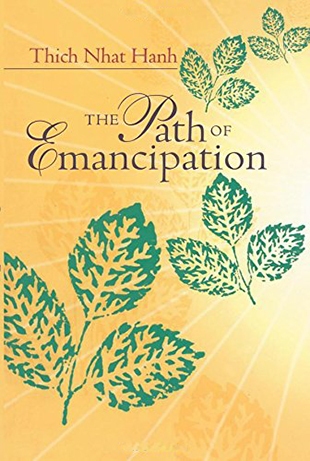The lectures and practices in this inspiring book were given at a retreat in Vermont in 1998 by the Vietnamese Buddhist monk and poet Thich Nhat Hanh. The material includes his interpretations of the "Discourse on the Full Awareness of Breathing" as well as his responses to questions during this three-week period.
One of the teachings about mindfulness is embracing the body with love: "For the first time, we pay attention to our liver. Our liver is comforted at that moment. If we continue for three, four, or five breaths, then insight will come. There is the intention to be kind to our liver, to protect it, because we know that our liver is a condition for our well-being. . . . We just embrace our liver and stop drinking and ingesting the poisons that harm it."
This same mindfulness can also help us embrace troublesome mental formations such as anger, despair, and attachment. Thich Nhat Hanh believes that the spiritual practice of joy can come through a smile that brings healing into our lives: "Every time we smile, all the generations of our ancestors, our children, and the generations to come — all of whom are within us — smile too. We practice not just for ourselves, but for everyone, and the stream of life continues."
Thich Nhat Han's view of interbeing — the interconnection of all beings — enables him to cherish animals (on their birthdays some Asian people release animals) and even inanimate objects (they are alive in their own special ways). And he wisely counsels city dwellers to take care of parks — for they are our lungs!
The Path of Emancipation also contains soul-stretching material on learning true love, transforming our suffering, and throwing away our wrong perceptions.
